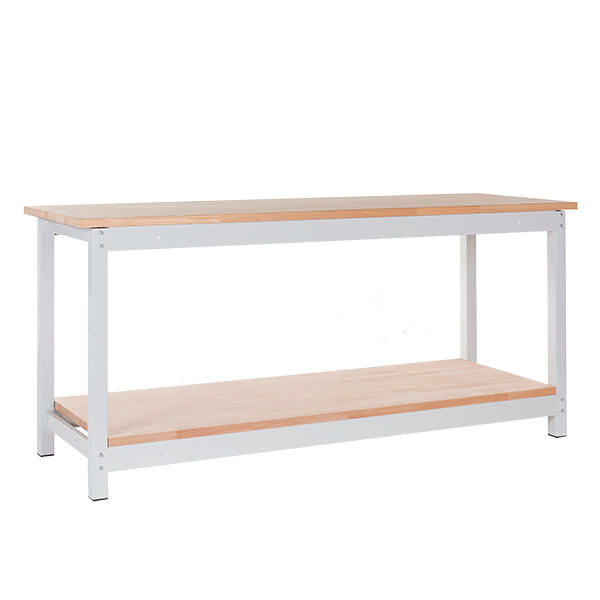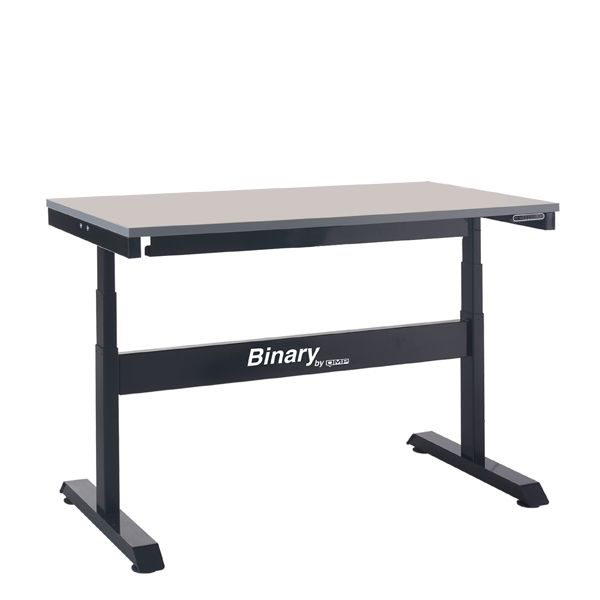
The 4 Key Things To Consider When Buying A Workbench
Whether you’re looking for a garage workbench, a workshop bench or workbenches for your business – the considerations are the same. There are key features that will determine what workbench is right for you. But what are these key features I hear you ask? This blog will hopefully help answer that and help you choose a workbench right for you! These are the 4 key things to consider when buying a workbench.
1. What Environment is the Workbench needed for?
First up, we have to think about the location of where your workbench/es are going. You will no doubt already know where, but what you may not know is what bench is suitable for your choice of location.
For instance, if your workbench is for home-use. Are you limited on space? Will there be times where your workbench isn’t required? Will the bench be taking up more space than it’s worth having? If the answer is yes, then a fully welded workbench may not be right for you. The solution would be a workbench with easy assembly (and disassembly) options. An assembly bench is often the pick for DIY users, as they can can simply assemble the bench as and when they need it.

If your workbenches are for your business, it’s important that the bench is safe and appropriate for it’s use. A great example of this would be employees who work on electronic components. Working around electricity requires users to be protected against ESD (electro-static discharge) events. Therefore it’s necessary that their workbench design can prevent this from happening. You could prevent this with ESD-type Workbenches, that protect the user and components they’re working on.
Whereas, if you’re working in for example, a packaging factory, a bench that offers packing accessories would be preferred. Packing accessories like Bench Roll Holders and Cutting Knives will be of great benefit in such environments. This is why the first step when buying a workbench is to consider the area and requirement for them.
2. What Worktop is right for your Workbench?

The second key thing to consider when buying a workbench is your worktop choice! Echoing the importance of Step 1, the work area will play it’s part on the worktop you pick. But Step 2 is to encourage you to think about the type of work you’ll be doing. What tools will be in-use on your workbench? Will you need to wipe down your worktop? The answers to such questions will determine what worktop is best for you.
Woodworking Workbenches are often the first thing people think of when thinking “workbenches”. Which is one of the reasons DIY users will often choose Beech worktops. Beech is an ideal choice for sharp tools, as it has high resistance to scratches and damage. So if you’re looking to do work such as carpentry – this will be the worktop for you. Beech is also easy to maintain, a simple sand down will keep the surface in good condition.
If you’re likely to work around oils or grease though, Beech won’t be a great choice. This is where worktops such as Laminate are ideal, as their resistance to such textures mean a simple wipe down will remove the residue. Laminate and worktops alike, such as Linoleum, will be easier to maintain smooth surfaces on in comparison to Beech. A quick wipe down will have your worktop back to brand new!
3. Consider the Workbench Capacity
The capacity is our third option to consider when buying a workbench. Capacity means the weight load the workbench will support. A lot of workbenches are advertised with their UDL Capacity – which refers to their Uniformly Distributed Load. The UDL will show you how much a workbench can support if the user distributes weight evenly on the worktop.

The UDL you require will of course depend on the heftiness of items you’re working with. This is where you’ll have to consider the realistic weight you’ll be placing on your worktop. For light trade use, weight capacities up to 250kg UDL should be fine. But for heavier use, we’d recommend choosing a weight capacities of 500kg upwards. You may even need heavier, dependent on what the workbench is for.
4. Sizes!
Finally, our last tip is to measure up your workspace! This may seem obvious, but it’s important to know what space you’ve got available. This could limit your workbench and accessory choices. But it could also mean that you may prefer a workbench with versatility – like a height adjustable option. Or perhaps a mobile workbench – where the bench can be moved as and when.
At Workbenches D2U, we have a range built to satisfy commercial and domestic customers. This is where we can discuss your needs and recommend items. You can shop our range here. Please note we can also offer bespoke options for larger orders. So, if your sizes are unusual – we may still be able help!



